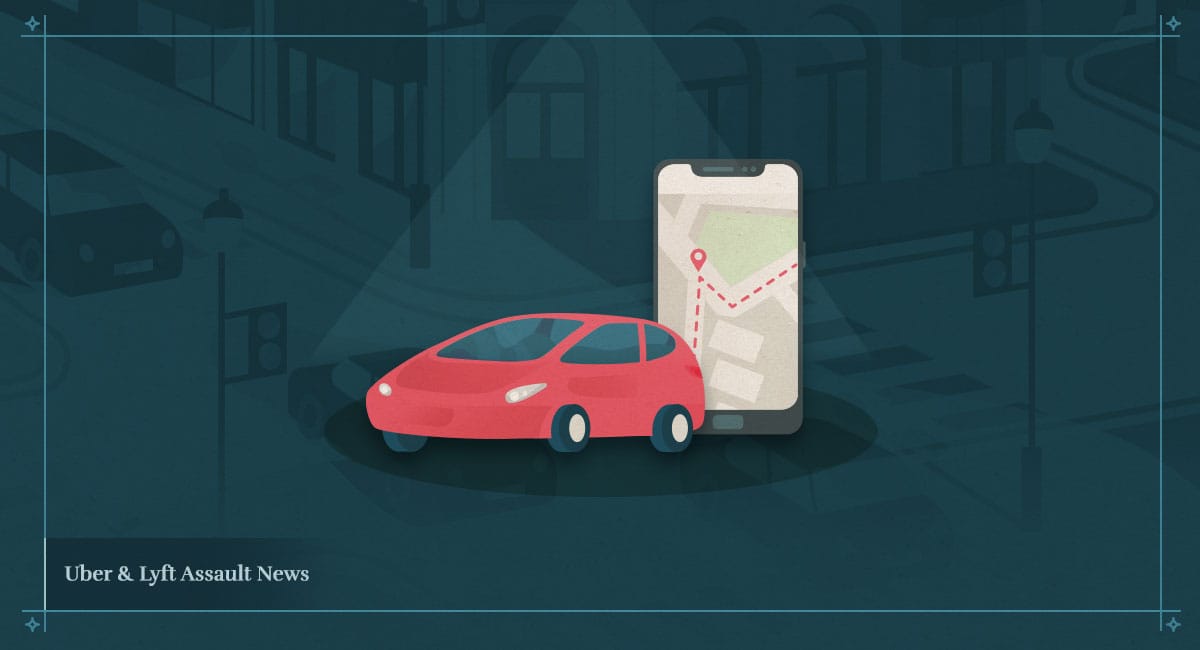Lyft Reveals 4,000 Reported Sexual Assaults In Safety Report
Lyft has published their first safety report, two years after Uber released its report. The Lyft report details an increase in rideshare sexual assaults.

In its first safety report, rideshare company Lyft revealed more than 4,000 reported sexual assaults that occurred from 2017 to 2019. According to Lyft’s Community Safety Report, riders and drivers have been victims of these assaults.
The safety report comes two years after Lyft pledged to release sexual assault statistics in 2019. A similar report was made public by Uber that same year. The delay has left many survivors questioning Lyft’s commitment to safety.
Assaulted While Using Lyft?
Learn About Steps to Take After a Sexual Assault
Lyft’s safety report focuses on three different categories:
- Sexual assaults
- Fatal physical assaults
- Fatal motor vehicle accidents
Lyft Sexual Assault Statistics
Recently, the public has scrutinized the safety of rideshare services after reports of assault. Uber and Lyft have faced thousands of sexual assault lawsuits. Survivors allege the rideshare companies have not taken sufficient steps to prevent the assaults. Uber and Lyft continue to deny liability.
The data in Lyft’s report shows a 64% increase in reported sexual assaults over the course of a two-year period. In 2017, the company collected 1,096 reports of sexual assault through its rideshare app. In 2018, the number rose to 1,255 reported assaults. In 2019, victims filed 1,807 reports.
The Lyft report breaks down sexual assaults into several subcategories:
- Non-consensual kissing of a non-sexual body part
- Non-consensual kissing of a sexual body part
- Non-consensual touching of a sexual body part
- Attempted non-consensual sexual penetration
- Non-consensual sexual penetration
These categories are part of the Sexual Misconduct and Violence Taxonomy, created by the anti-sexual violence group Raliance in 2018. The full taxonomy includes 21 categories of sexual assault and misconduct. Lyft’s report uses five of the most serious sexual assault categories.
Non-consensual touching of a sexual body part was the most commonly-reported form of sexual assault. In 2019 alone, users reported 1,041 incidents of non-consensual touching of a sexual body part. The category of non-consensual kissing of a non-sexual body part received the second highest number of reports in 2019. Survivors reported 293 incidents in this category.
Similar data was reflected in Uber’s U.S. Safety Report. Released in 2019, Uber’s report documented nearly 6,000 sexual assaults. In 45% of these incidents, the rider was named as the accused party. These statistics revealed the dangers posed to rideshare drivers as well as riders. Lyft’s safety report does not make this distinction between the victim and the accused party.
According to their reports, survivors have reported more than 10,000 incidents of sexual assault to Uber and Lyft in a two-year time span. Although this number seems high, survivors and advocates note the true number of rideshare sexual assaults is likely higher. The data shared by Uber and Lyft only accounts for reported incidents. However, many victims of sexual assault will delay or never report their experience of assault.
Assaulted During a Lyft Ride?
You May Be Eligible For Legal Compensation
Fatal Physical Assaults
The Lyft safety report also includes data about fatal physical assaults. From 2017 to 2019, 10 assaults, associated with the company’s rideshare services, resulted in the death of the victim. Four of these occurred in 2019.
Uber’s safety report also includes statistics about fatal physical assaults. Neither report addresses non-fatal physical assaults. However, victim allegations, media coverage and lawsuits show that drivers and riders have been victims of Lyft-related non-fatal physical assaults.
If you or a loved one was assaulted while using Lyft, you may be eligible to file a lawsuit. Speak with an experienced abuse lawyer today to learn more about your legal options.
Fatal Motor Vehicle Accidents
The Lyft safety report also detailed motor vehicle fatalities:
- In 2017, Lyft received 22 reports of fatal motor vehicle accidents.
- In 2018, Lyft received 34 reports of fatal motor vehicle accidents.
- In 2019, Lyft received 49 reports of fatal motor vehicle accidents.
Lyft’s History of Mishandled Allegations
Criticism for Lyft’s handling of assault allegations prompted the company’s original pledge to release a safety report. In 2019, more than a dozen rideshare assault survivors sued the company for failing to enact basic safety measures. Lyft’s response to these allegations has often been dismissive or antagonistic.
For example, in 2019, Cristen Giangarra was sexually assaulted by her Lyft driver. Giangarra sued the company for failing to do a thorough background check on the driver. In response, Lyft attorneys wrote that Giangarra “knew the risks of injury and damage involved in her conduct” and “failed to act as a reasonable and prudent person with regard to her own safety.”
Lyft has also been slow to implement new safety features. Current features include background checks for drivers and safety check-ins for riders. However, some advocates believe video surveillance in vehicles would deter the majority of sexual assaults. Neither Uber nor Lyft has added video surveillance to its host of safety features.
Sources
- 1
Byers, C. (2021, June 29). Lyft accused of victim blaming by St. Louis rape survivor. KSDK.
- 2
Conger, K. (2021, October 22). Lyft Says 1,807 Sexual Assaults Occurred in Rides in 2019. The New York Times.
- 3
Lyft. (2021). Community Safety Report [PDF].
- 4
Paul, K. (2021, October 22). Lyft admits it recorded 4,000 sexual assault claims in long-awaited report. The Guardian.
- 5
(2021, October 22). Lyft’s first safety report shows over 4,000 reports of sexual assault. NPR.


